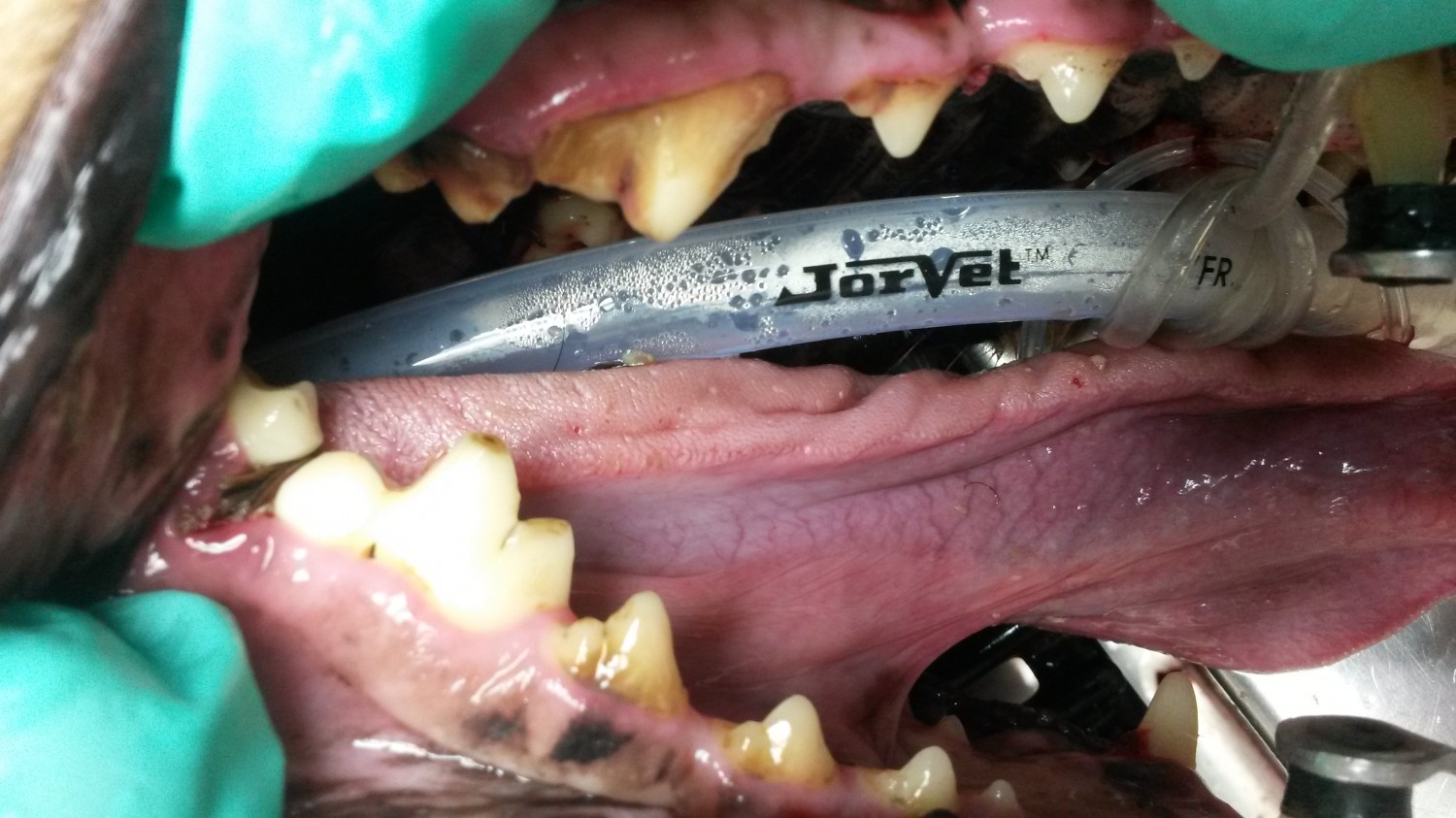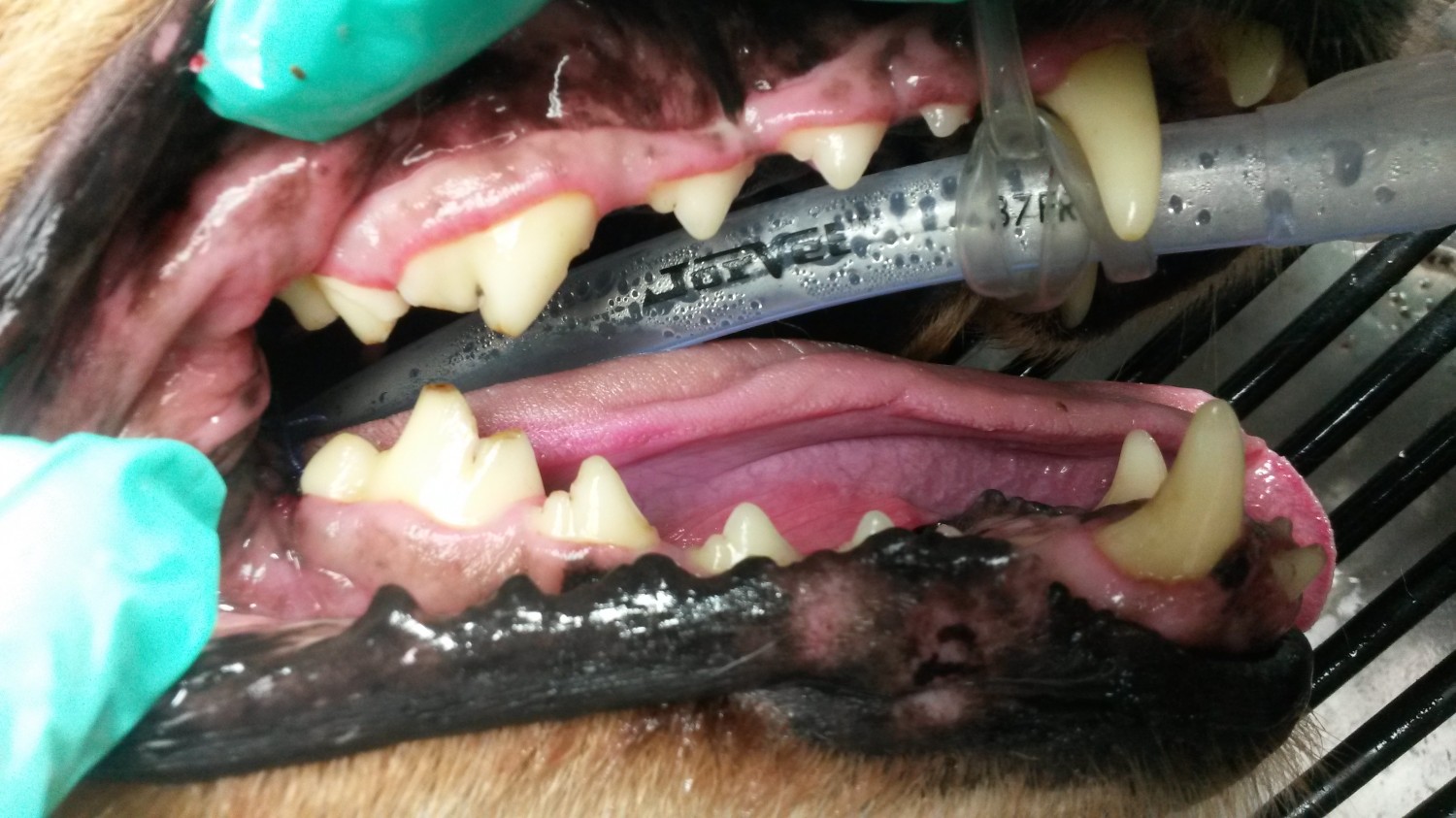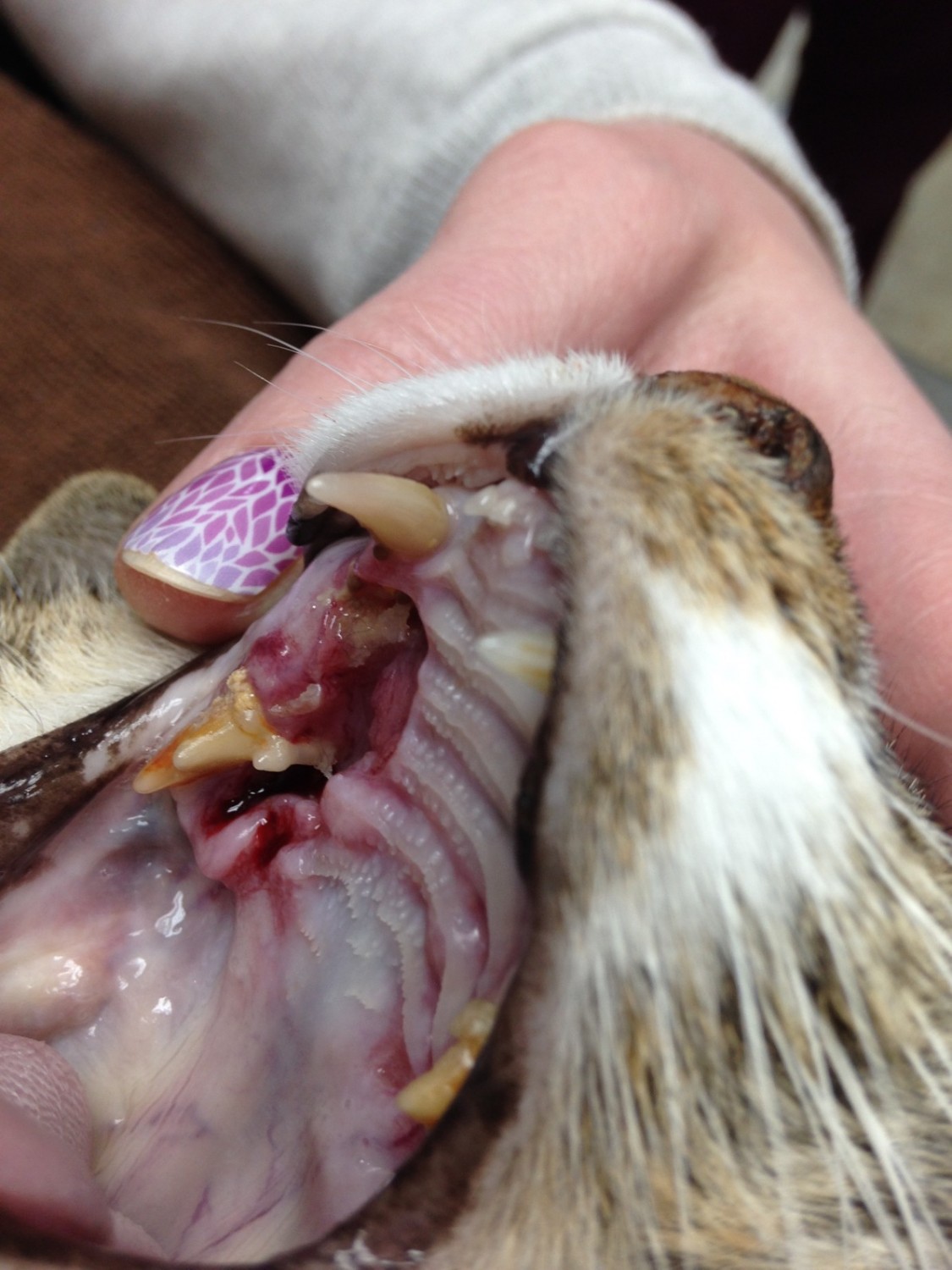|
Cats and dogs are not the only ones that require dental care. Small mammals such as rabbits and guinea pigs also need dental care. Their teeth continuously grow and may become too long and inhibit chewing. Their teeth may need to be periodically trimmed to support normal dietary function.
Before Dental Cleaning
 |
After Dental Cleaning
 |
What is at home dental care? There are many ways to manage and help prevent gum disease at home. The best way is to clean the surface of the teeth frequently. Toothbrushing is still considered the gold standard. Yes, we have special flavored toothpaste for your dog and cat. If your pet will not allow brushing, there are other options; daily chewing activities can also be effective. Prescription dental health diets such as Hill’s canine and feline t/d help treat gingivitis and are designed to decrease plaque and tartar accumulation. Raw hides and other chew treats can also be effective. Many products have published research supporting their efficacy. For a list of approved products visit the Veterinary Oral Health Council’s website (vohc.org.)
What does a dental exam and cleaning involve? A dental exam involves a thorough examination of all aspects of your pet’s oral cavity including larynx, tonsils, pharynx, hard and soft palate, tongue, and all surfaces of each tooth including probing for periodontal pockets. Plaque and tartar are then cleaned off the teeth and the crown and below the gum line are polished and a fluoride treatment performed.

A thorough oral exam is essential to any dental cleaning to determine the root of many problems. The cat in the picture was having chronic upper respiratory signs, sneezing, and mucoid discharge that never improved with antibiotics. She would not allow an oral exam while awake but while anesthetized we can see she had a very large area of ulceration that exposed parts of her nasal cavity. This is why a thorough oral examination is necessary while under anesthesia.
Is dry food enough to keep my pet’s teeth clean? Dry food does help reduce tartar buildup; for some pets dry food may be all that is needed to keep their teeth clean. However, for most pets, dry kibble is not enough to prevent plaque and tartar accumulation on teeth. Once the soft plaque has turned into hard dental tartar, brushing alone will not be enough to clean the teeth. Dental tartar must be removed with dental instruments and afterwards the teeth should be polished to smooth out their surface.
Why does my pet need a dental cleaning even when I brush her teeth and give her dental chews? For humans, brushing alone is not enough to keep all plaque and dental tartar off of our teeth. Your pet is the same way; although you are doing a great job brushing and providing great at home dental care, your pet will develop plaque and tartar that needs to be professionally removed.
Bad breath may be a sign of periodontal disease which affects four out of every five pets.
|